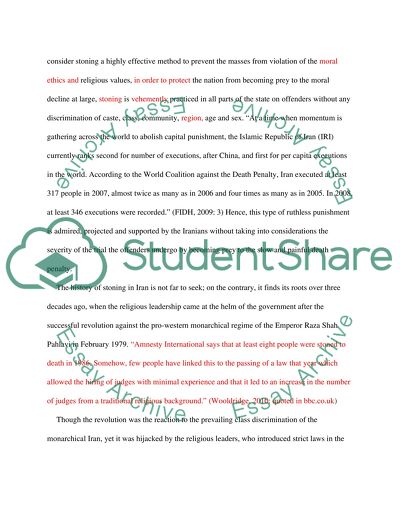Cite this document
(“Stoning in Iran Essay Example | Topics and Well Written Essays - 2500 words”, n.d.)
Retrieved from https://studentshare.org/environmental-studies/1407591-stoning-in-iran
Retrieved from https://studentshare.org/environmental-studies/1407591-stoning-in-iran
(Stoning in Iran Essay Example | Topics and Well Written Essays - 2500 Words)
https://studentshare.org/environmental-studies/1407591-stoning-in-iran.
https://studentshare.org/environmental-studies/1407591-stoning-in-iran.
“Stoning in Iran Essay Example | Topics and Well Written Essays - 2500 Words”, n.d. https://studentshare.org/environmental-studies/1407591-stoning-in-iran.


